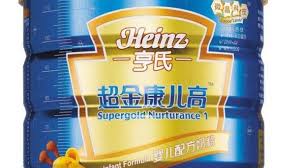Heinz tasked Olympus Automation and barcode reader manufacturer Cognex with revamping the label verification system at its plant in Kendal, Cumbria after establishing that the duo could guarantee "100% read rates on products."
As well as manufacturing infant cereal for domestic sale, the Kendal plant produces Heinz brand “premium” infant formula products for export to China and third-party “standard” infant formula products, which are shipped to the Czech Republic.
This, according to Olympus and Cognex, means that “accurate barcode reading is essential to ensure the correct products are identified and shipped to each customer.”
Readers "could not cope"

Working hand-in-hand, the companies settled on the DataMan 302X image-based barcode reader, which allows “all images to be seen in real time and therefore establish if a code has been read or not.”
Prior to the update, Heinz's Kendal factory employed a label verification system consisting of two readers - one that could only read ladder (vertical) barcodes and another that could only read picket fence (horizontal) barcodes.
The previous system however “could not cope” with the high-speed 97 cans per minute production line, said the companies.
Their solution was to rotate the can.
The team installed six DataMan 302X readers in a row along a can turner This deals with the "convex structure and reflective surface" of the cans, said the duo.
"As the can is rotated through 360 degrees, each reader is triggered in three batches of two.”
“This process results in at least two of the readers being able to read to code on each can.”
'No reads'
This solution, according to the companies, will prevent incorrect cans being packed, eliminate line downtime due to ‘no reads’, and ensure that the correct dates are printed on each pack.
“If incorrect barcodes or ‘no reads’ are detected, alarm beacons and display screens alert the operators who will stop the line and clear the defective product to ensure no incorrect can continue to the packaging area,” they said.
“The system also links to the site’s Domino inkjet printers and Markam case printers to ensure the correct dates are printed on each pack, ready for shipment," they added.
